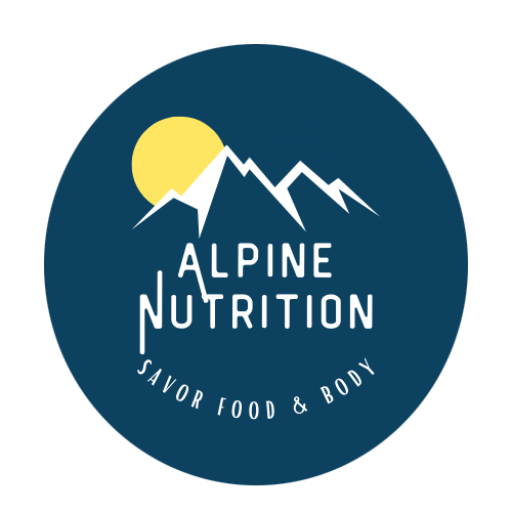Stress can wreak havoc on your eating habits. If you find yourself stress-eating or using food as a way to cope with your emotions, you’re not alone. Stress has a curious way of increasing food cravings while leading us towards less-than-ideal food choices.
In this article, we’ll explore how you can harness the power of food to combat stress and emotional eating, without feeling like you’re on an emotional rollercoaster.
I got the call around lunchtime.
He said, “I have something big going on in my life right now.”
My stomach hit the ground.
“I decided to start online dating and I recently met someone,” he continued.
I couldn’t feel my body from the neck down. This man had been in my life for the past 14 years and now he was gone.

Whether it’s a relationship breakup, news of a friend just diagnosed with a terminal illness, or hearing someone close to you has been in a car accident, the emotional stress hits your body like a freight train. You lose the capacity to feel basic needs like hunger, fullness, thirst, sleep, etc. How do you take care of yourself at times like these?
These situations, the ones that overwhelm your body’s ability to handle stress, are what I call “big-T” traumas. Yet, even the everyday stressors like a tough day at work, a frantic dash to pick up your kids, or the dread of missing a credit card payment can impact your relationship with food.
Many of my clients report that stress amplifies food cravings, typically for unhealthy choices vilified by diet culture. When stress influences food choices and cravings, it can feel like a loss of control, as if you’re eating your emotions. This is why emotional eating feels distressing and gets a bad rap in the self-help world. So, what can you do differently?
First, show yourself some much-needed self-compassion. Remember, experiencing intense emotions is part of being human. Our culture often teaches us to suppress these feelings, but as you learn to acknowledge and process your emotions, consider how food can be your ally during stressful times, rather than your crutch.
Eat Enough: Surprisingly, it’s essential to ensure you’re eating adequately, even if you feel like you’re eating your emotions.
If you’ve been restricting your diet to lose weight and aren’t eating consistently, your body may lack the nutrients needed to handle emotional stress. This deficiency can lead to cravings and unhealthy food choices. But how much is enough?
During high emotional stress, it’s challenging to gauge hunger and fullness accurately. I recommend setting a gentle reminder on your phone every three hours to eat. It could be a simple snack like fruit, nuts, or cheese, with a piece of chocolate for comfort.
Or, opt for a balanced meal, like a sandwich with some salty chips on the side for added comfort. Balancing comfort foods with nutritious ones sends a message to your mind that it’s perfectly okay to honor your cravings, ultimately erasing food guilt and shame while nourishing your body to cope with stress.
Regular Carb Intake: Eat carbs regularly, especially in times of stress, regardless of diet culture’s point of view on stress eating.
Carbs, including whole grains, fresh fruits, vegetables, beans, and legumes, are essential components of a healthy diet. When you consume carbohydrates, your body releases insulin into your bloodstream. This hormone not only helps your cells utilize the sugar from carbs for energy but also aids in the absorption of vital amino acids like tryptophan.
Tryptophan is the precursor to serotonin, the neurotransmitter responsible for feelings of well-being. Foods rich in tryptophan include salmon, pastured eggs, hard cheese, turkey, tofu, nuts, oats, and seeds like pumpkin or sunflower seeds. To maximize stress relief from these foods, pair them with whole-food-based carbohydrates whenever possible.
Consider carbs and protein as your go-to stress-reducing foods.

In an ideal world, your body would naturally be resilient to stress because you’d have excellent gut health. Healthy gut bacteria play a significant role in managing stress and food cravings. Unfortunately, these helpful gut microbes don’t thrive in stressful environments (just like the rest of us).
However, you can support your gut bacteria’s health by diversifying your diet with more plant-based foods, getting enough sleep whenever possible, and engaging in regular, enjoyable exercise such as a nature walk, yoga, weightlifting, or dancing. And if you can spare 10 minutes a few times a week for meditation, you’ll earn bonus points in the quest for a less stressful life.
Stress eating, emotional eating, and the battle against stress-induced food cravings are all part of the human experience. Yet, you don’t have to suffer with food guilt and shame while navigating stressful situations.
Choose foods rich in carbohydrates and paired with adequate protein, as your allies in reducing stress. Give yourself full permission to include them regularly in your diet, and remember that, as a human, you’re entitled to feel your emotions without judgment.
For additional stress-reduction tips, check out this recent article in The Telegraph. Scroll halfway through to read my recommendation for a comforting snack: peanut butter toast paired with a crisp apple!




